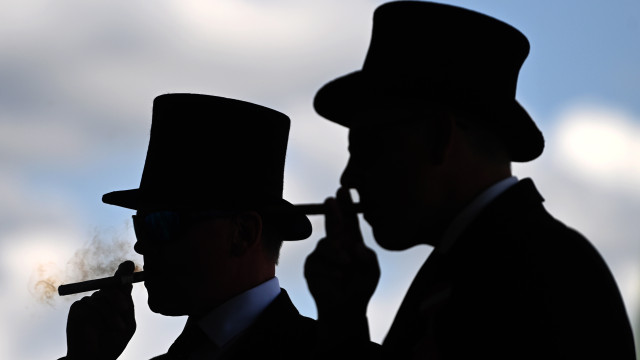Aristo Torres arranges tobacco leaves in a factory in Nicaragua - a country that has seen great progress in the production and export of cigars - with a skill that comes from four decades of experience.
Tobacco in the Central American country is grown in volcanic soils, which growers, traders and consumers at the 11th Nicaraguan Cigar Festival say give it something special.
Nicaraguan tobaccos "have a very good shape, they are rounded - these are tobaccos that are sweet, some are spicy," Colombian Andres Diaz Cote, a regular smoker of 57 cigars, told AFP at the fair, which was held in the city of Esteli. about 150 km north of the capital Managua.
"The way they burn is perfect," he insists.
The tobacco industry in Nicaragua originated in the 1960s in the hands of Cuban emigrants who fled after the revolution there.
In the vicinity of Esteli, they found volcanic soils rich in minerals and nutrients and a tropical climate ideal for tobacco plants.
According to Juan Ignacio Martinez, president of the country's oldest tobacco company, Joya de Nicaragua, today Nicaraguan cigars are smoked in more than 90 countries around the world.
Most of them are exported to the United States, where a ban on imports from Cuba, enforced by sanctions since 1962, has cut off consumers from cigars from the communist island considered the world's best.
In the Esteli region, there are about 150 companies involved in the cultivation, processing, packaging and production of cigars, Martinez added.
"I think the best cigars in the world right now come from Nicaragua... People love Nicaraguan cigars," American businessman Rocky Patel, who also produces cigars in Honduras and the Dominican Republic, told AFP at the fair.
After the Covid 19 pandemic, Nicaraguan tobacco companies feared a drop in business, but in reality it was the opposite.
With restrictions on movement around the world, people started smoking at home rather than in cigar bars, which increased sales.
"Since 2019, we have had a great demand for tobacco ... and this has been of great benefit to the industry and Nicaragua as a country," said Manuel Rubio, president of the Nicaraguan Tobacco Chamber.
"Last year we had good results with approximately 180 million cigars exported worth about $400 million," he added. "For this year, we foresee a growth of about 10-15%.
The tobacco sector in the Esteli department directly employs about 35,000 people out of a total of 65,000 in the whole country - among them is the 56-year-old cigar maker Torres.
He explains with great patience and obvious pride his work in making the "bonchero" - the main leaf mixture that goes into each cigar.
"It's something special," Torres says of his craft.
"Every day we have to learn a little more, experiment in order to please the customer. If we don't please the customer, then we don't do anything"./BGNES







